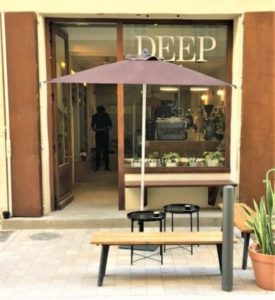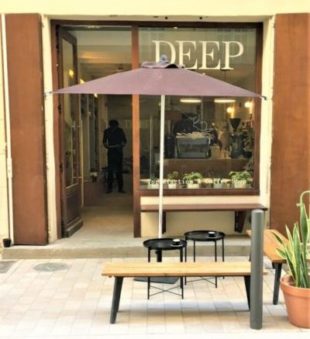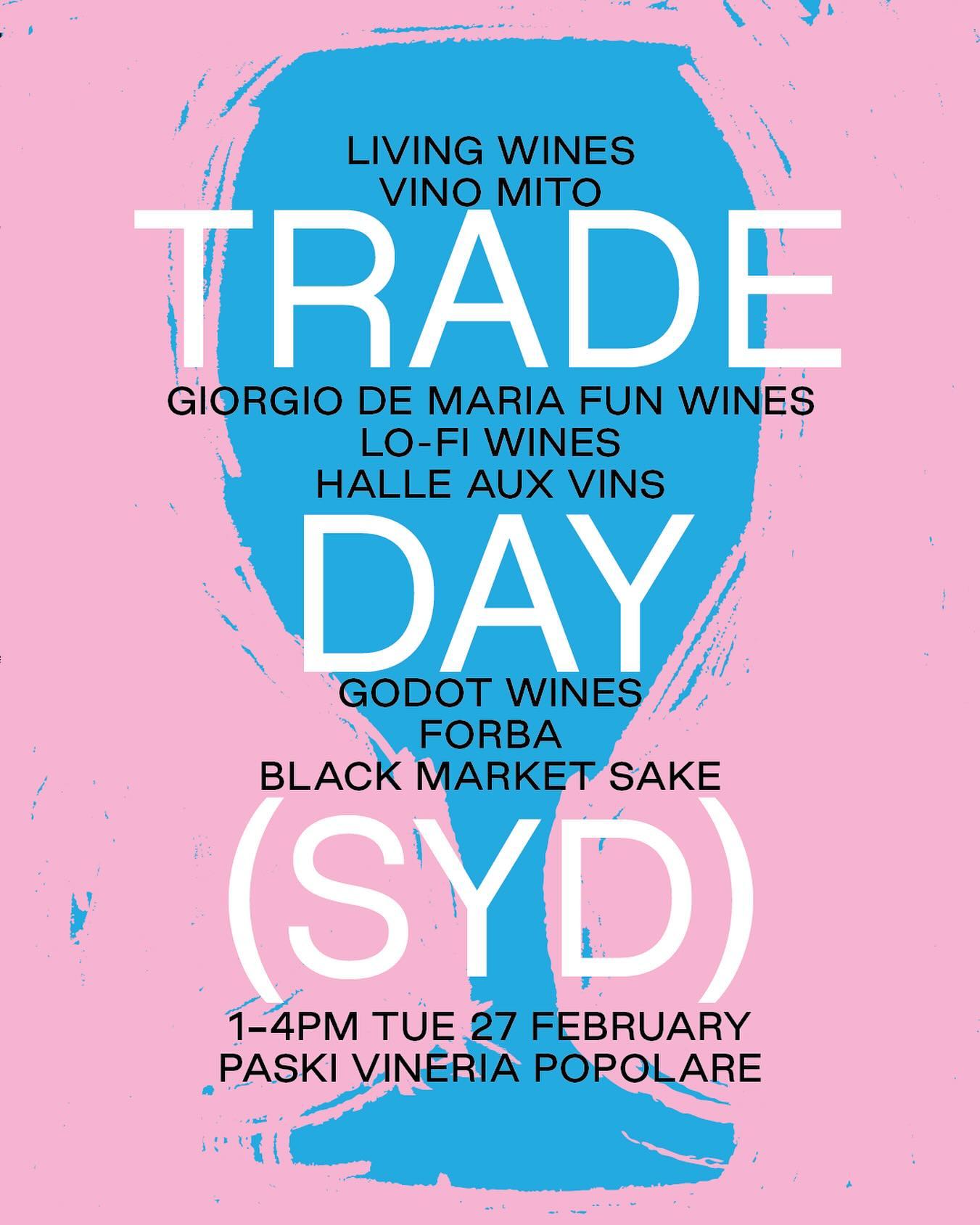Deep in Marseille – Introduction
In our story about coffee called The Fascinating Story of Coffee we wrote about how France has been very slow to embrace premium coffee. We proposed a couple of reasons that included their colonial history where many of the countries they occupied grew the less than stellar Robusta coffee shrubs and the fact that coffee drinking was considered secondary to discussion and smoking.
But during the preceding decade we have seen the gradual emergence of a premium coffee culture in France, starting in some of the major cities but not yet seeping out to country areas with the exception of the small town of Puligny in the Jura which is home to a great coffee roaster.
We were therefore delighted when we found Deep on our most recent trip to the southern city of Marseille which is only metres from the Vieux Port. Over the past ten years we have developed a great fondness for Marseille. It has very good restaurants, some great natural wine bars, excellent delicatessens and some very good bottleshops. It also has a vibrant arts scene and interesting museums and some exciting drives especially in the direction of the Calanques.

On the morning we went to Deep recently we were given an espresso made from heirloom beans sourced from the Guji Highland Coffee Plantation in Ethiopia which lies at an altitude of 2200 metres ensuring slow growing of the beans due to the cooler conditions at this height.

About Coffee Processing
We were also delighted to see that these beans had undergone a natural process rather than the common washed treatment.
Why do we say this? Well, just like grapes, the flavour of a coffee bean relies on a number of factors including the quality of the soil, the local climate including temperature and rain profiles, the age of the coffee plants, the type of processing and then, once the beans reach their destination, the skill of the roaster.
To understand the difference between the washed and natural processes a little background information is helpful.
Coffee beans grow on trees that can attain a height of 6 or 7 metres. There are two main plant types Coffea arabica and Coffea robusta and each has many varieties that have evolved from the originals.
The trees produce flowers which then turn into a green fruit before ripening into a reddish colour (or yellow or orange). Inside the fruit there are two beans (mostly) which are the coffee beans that are used for our coffee.
These beans must be separated from the fruit that surrounds them.
The “washed” process uses water to clear the fruit pulp from the bean. Fans of the washed process claim that this removes any likelihood that flavours from the skin and fruit can taint the flavour of the bean thus giving a more pure expression of the bean flavour.
The “natural” process involves spreading the fruit out in the sun for a period of weeks so that the fruit dries and can be removed easily from the beans. During this period it is likely that the beans will take up some of the flavours and sugars from the drying fruit and skin, thus leading to more complex flavours.
The Guji coffee has been processed using the “natural” approach and the result is complex flavours and a clean finish.
You can learn more about the processing approaches used throughout the coffee world in the article we mentioned above that covers washed versus natural processing as well as newer, more complicated processes such as cherry fermentation and even carbonic maceration which is similar to a process used by some wine producers.
In addition, the process allows yeasts and bacteria in the environment to start fermentation processes in the drying pulp.
We often compare this process to natural fermentation versus commercial fermentation of grapes. If commercial yeasts are added to grape juice then the results are more predictable but are often lacking in complexity. Allowing grape juice to ferment using the naturally occurring yeasts in and on the the grapes provides a better reflection of the place from which the grapes come because yeast populations vary dramatically from one microlocation to another.
Deep – Conclusion
So, after all that, Deep sources very good beans from good producers and they make the coffee very well. It is very satisfying sitting outside on the pavement quietly enjoying the coffee and pastries on offer.
We should also add that the service is very good at Deep, with orders being taken promptly and a willingness to discuss the best coffee to suit your needs.
They also provide very useful information about the coffee in the form of cards which list the farmers (the Croce family), regions (Mococa in the state of São Paulo), country (Brazil), processing type (Natural) and varieties (Red Bourbon, Red Catuaï, Mundo Novo) for you as well as the elevation (1000 – 1400 metres above sea level).

You can read more about Deep on their Web site here:
Additional information
Street: 15 Rue Glandeves
Town/Suburb: Marseille, 13001
State: France
Phone number: +33 9 72 65 80 24
Opening hours: Daily from 10am






















